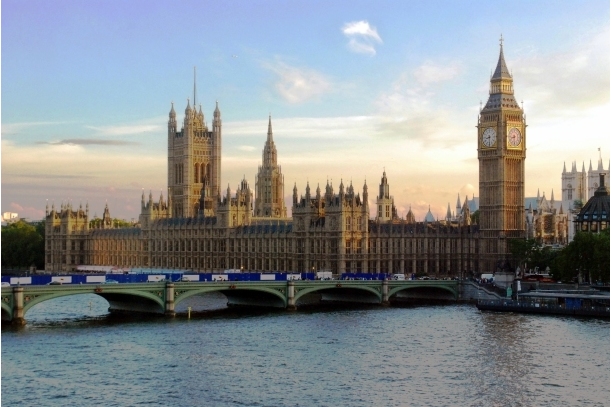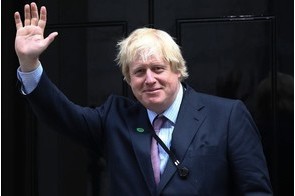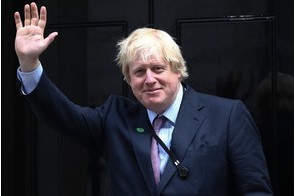Latest News
Parliamentary committee wants coherent UK engagement with Africa

News Highlight
The report describes UK visa policy for African countries as “arbitrary, expensive, time-consuming and humiliating.”
The House of Lords International Relations and Defence Committee has, today, called on the UK government to develop a new approach to its relations with the countries of Africa and regional institutions such as the African Union based on ‘genuine partnership.’ The influential committee of the upper legislative chamber of the British Parliament said UK lacked a coherent strategy to its engagement with Africa.
In 2018, the UK launched a ‘new strategic approach’ with Africa. But the committee said the strategy document does not live up to its name and is just a collection of broad ideas with little clarity on how to put them into action.
The committee’s new report identifies areas to strengthen UK’s relations with Africa. These include supporting reform of UN Security Council to give African nations a voice “commensurate with their size and importance”, reform of UK visa policy and bringing down remittance costs.
The report describes UK visa policy for African countries as “arbitrary, expensive, time-consuming and humiliating” and rues the ‘hostile environment’ created by the policy and the Windrush scandal, which it says have damaged the UK’s reputation in Sub-Saharan Africa (SSA), making it harder to build strong relationships in the region. According to the report, UK visa policies in some cases fall below the standards of basic human decency.
The committee called on the British Home Office to urgently review how visa policy is operating for people from Africa who wish to come to the UK. It called for the Foreign and Commonwealth Office (FCO) and Department for International Trade to participate in the review to ensure diplomatic and trade and investment priorities are properly considered.
Apart from its visa policy, the committee said the UK’s colonial legacy and the ongoing issue of structural racism in the country are a difficult backdrop to its engagement with SSA countries but which the UK government must address. The committee report identifies Africa as a region of strategic and geopolitical importance to the UK, one in which countries such as China are already active.
According to the findings of the committee, in 2018, money sent to SSA countries from diaspora communities globally was three times higher than the combined official development assistance received by the region. Approximately £6 billion was sent from the UK in remittances, providing essential economic support and encouraging entrepreneurship. The report identifies remittances as an important part of the economic relationship between the UK and the region and urges fuller engagement with the diaspora by UK policymakers.
However, the committee said it found a lack of competition in the UK’s money transfer market, which makes people sending money to African countries to often face exorbitant fees. Average fees for sending money to SSA countries from the UK were as high as 9.4 per cent in 2018, above the global average of 7 per cent and well above the Sustainable Development Goals target rate of 3 per cent. The report says the UK government should use its power over competition policy after the European Union transition period has ended to support greater competition in the market to drive down remittance charges. This, it says, will be particularly important as the economic fall-out from COVID-19 is likely to reduce the amount of money sent to Africa in remittances.
The report also says that SSA countries have many of the world’s fastest-growing economies, but UK trade and investment in the region has flatlined. It, therefore, advises on a concerted strategic effort from the UK to reinvigorate its trade links with countries in the region and that a plan to build on the UK-Africa Investment Summit in January are urgently required. The report identifies Africa’s agricultural exports to the UK as an area of opportunity in developing UK’s trade policy with Africa, post-Brexit.
The committee expressed regret over the decision last month to merge the Department for International Development (DfID) into the FCO, advising the government to provide urgent assurances that it will continue to spend UK aid in line with the definition of official development assistance agreed by the Organisation for Economic Co-operation and Development (OECD), for the promotion of the economic development and the welfare of developing countries.
“Despite a significant fanfare when it was launched in 2018, the Government’s ‘new strategic approach’ to Africa has failed to live up to its name,” said Baroness Anelay of St Johns, Chair of the Committee. “It is time to press the reset button and use the timing of the UK’s exit from the EU and the Integrated Review of foreign, defence, security and international development policy to develop an action plan for a new relationship based on genuine partnership.”
She said the UK has a lot to do to develop the kind of future relationship that is in the interests of both the UK and the nations of Sub-Saharan Africa.
Related News
Latest Blogs
- CBN is fighting inflation instead of stagflation
- Why electricity privatization failed (2)
- How net metering can boost embedded power generation
- Adaora Umeoji and gender in Nigerian banking leadership
- Is protest an endangered human right of Nigerians?
Most Popular News
- IFC, partners back Indorama in Nigeria with $1.25 billion for fertiliser export
- Ali Pate to deliver keynote speech at NDFF 2024 Conference
- Univercells signs MoU with FG on biopharmaceutical development in Nigeria
- CBN increases capital requirements of banks, gives 24 months for compliance
- CBN settles backlog of foreign exchange obligations
- Nasdaq Dubai welcomes $600m sukuk listing by Islamic Development Bank






